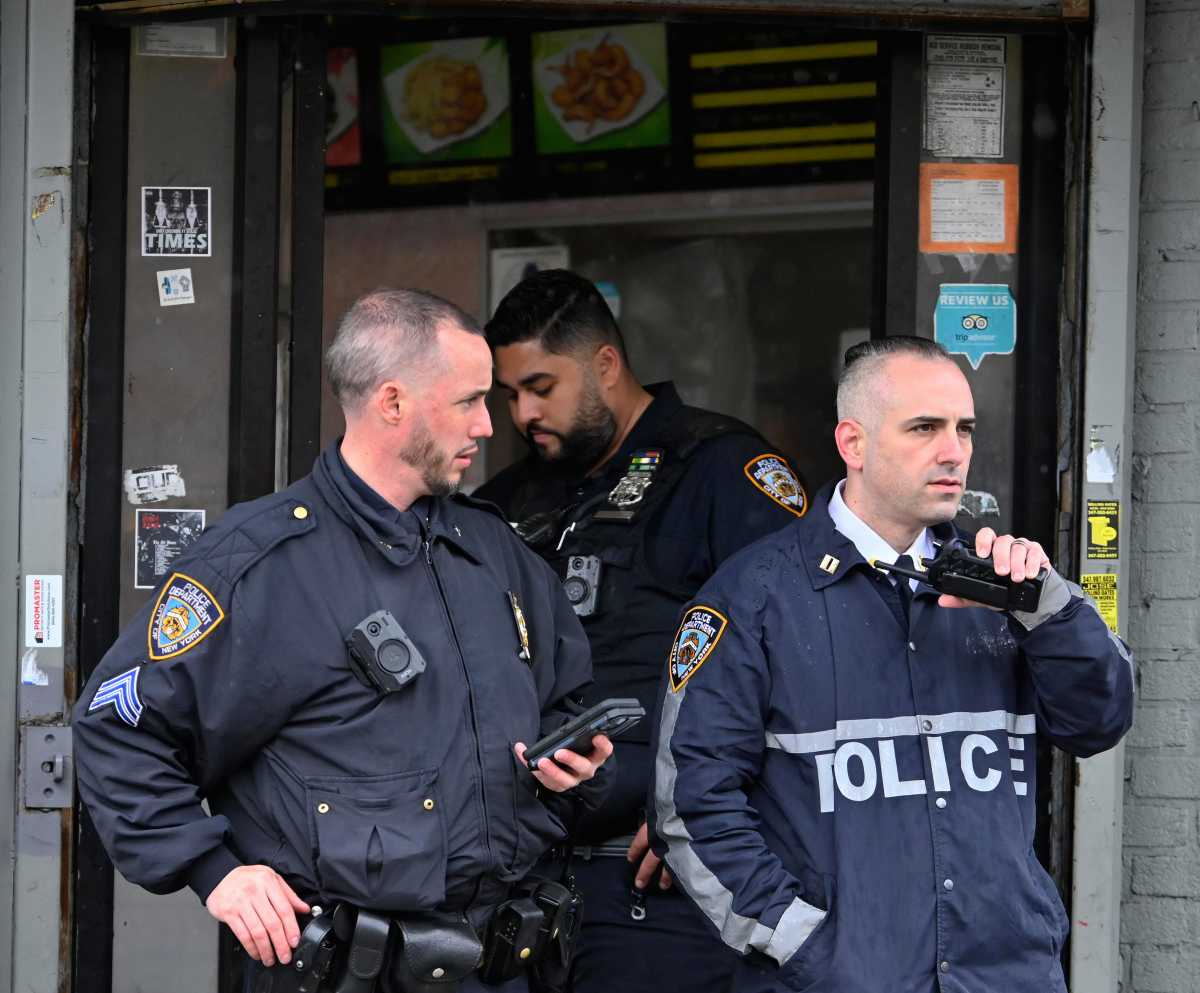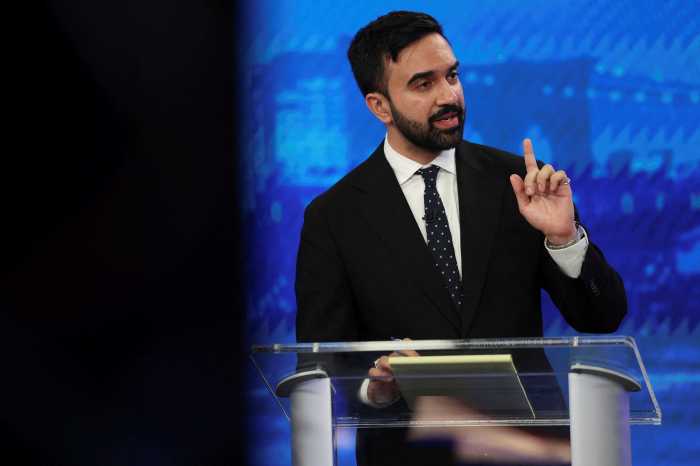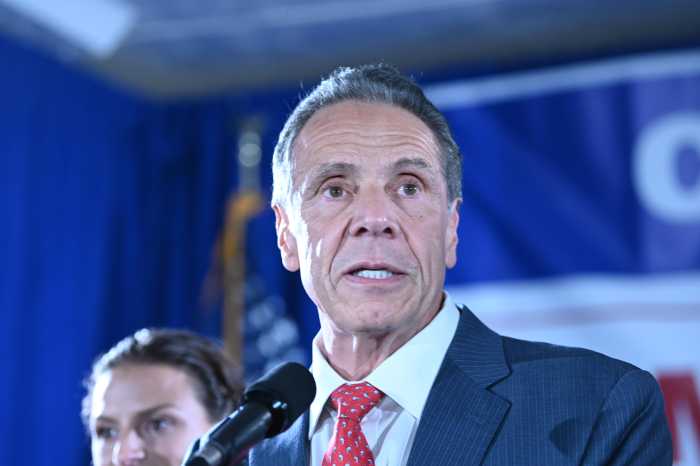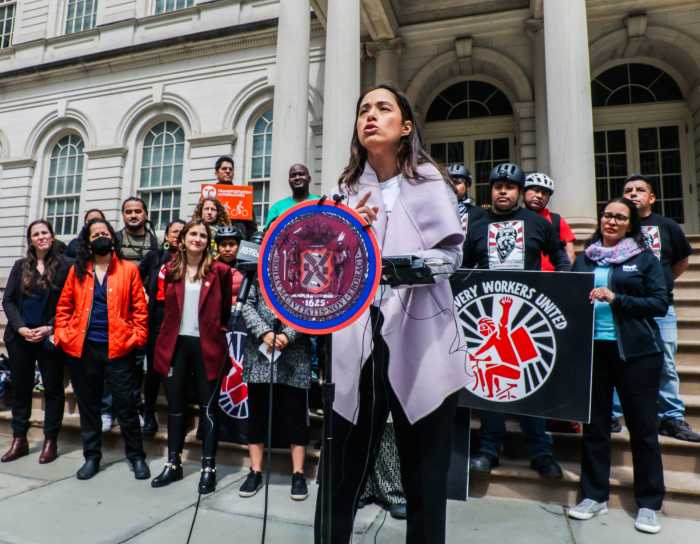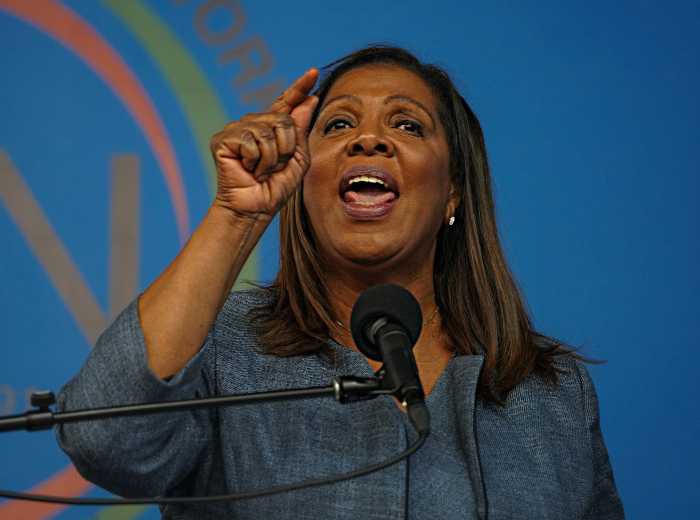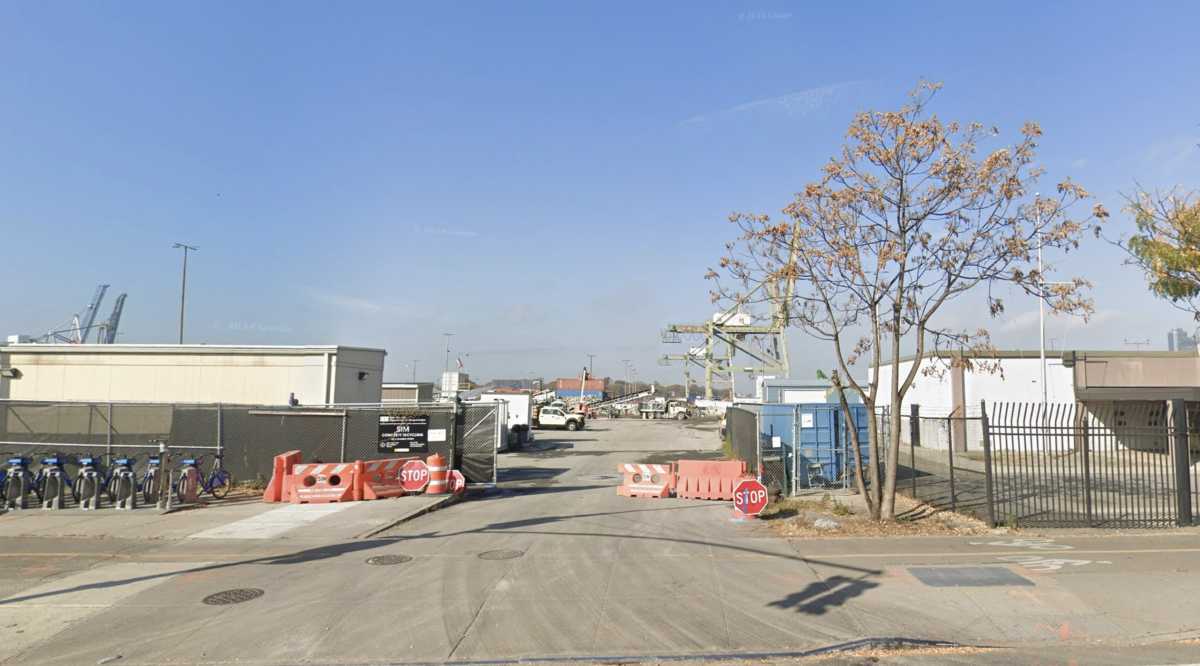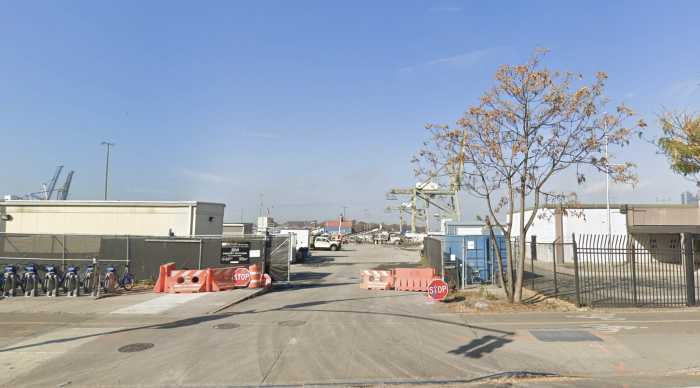State Senate legislation that would compel police departments in New York State to open encrypted radio transmissions to the press and with a delayed broadcast to the public received sponsorship in the Assembly last week.
Bronx Assembly Member Karines Reyes, chair of the influential Puerto Rican/Hispanic Task Force, introduced on April 3 an Assembly version (A.09728) of the legislation which Queens state Senator Michael Gianaris initially proposed in the state Senate (S07759).
The Senate version of the bill would require police agencies to open their encrypted radio frequencies to the accredited press (as defined by New York State), and provide a 10 minute delay feed to the general public. The legislation was prompted by the NYPD’s efforts to encrypt all of their frequencies without having a plan to provide access to the media. The plan has been called by some press advocates as “the most destructive transparency policy in the history of New York.”
The New York City press corps has had access to police radio transmissions for more than 90 years, providing real-time breaking news and emergency information to the public. The NYPD, however, has sought to encrypt the radios and cut off public access, saying it is necessary to stay a step ahead of criminals who might be listening in.
Many precincts in Brooklyn and Staten Island have already had their radios encrypted, shutting press organizations out from vital information about emergency response. A coalition of media groups argues this undermines police transparency, and forces journalists to rely largely upon police statements given long after the immediate response to crimes and other emergencies.
Long road to encryption
New York City has spent nearly a billion dollars on the new encrypted radio system through a combination of radio purchases, replacement of thousands of aging repeaters and microwave antennas, additional technical manpower and hundreds of monthly subscriptions for wired phone lines.
amNewYork Metro made a Freedom of Information request for a full accounting of the radio program spending — which the NYPD ultimately denied.
The encrypted radio system is replacing an aging analog system that was open to mischief by what police officials say are “bad guys” using cheap Chinese-made radios to interfere with emergency channels, especially during civil disturbances. They also claim criminals had police radio scanners while committing crimes, but they also failed to showed any misuse of radios by journalists. The new systems assure officer safety, police officials say.
At a March 7 City Hall budget hearing, where NYPD officials appealed for an additional $81 million for radios, they admitted that the department has made no decisions on whether they will provide any access for the press or the public to radio transmissions. Officials cited unspecified privacy and legal concerns that have not been worked out in the more than five years of the radio build-out project.
Instead, the department has maintained that they are “transparent,” providing “the narrative” for crime in the city through notifications, emails to the press and a vastly expanded social media presence.
Media advocates say the department presently delays crime and emergency incident notifications many hours or days after the incident has occurred. Advocates say sometimes information is not given at all — leaving the narrative to the uncertainty of social media.
The NYPD came under scrutiny by Council Speaker Adrienne Adams who has been critical of the department’s plan to go dark on all frequencies.
“There should be a happy medium here…than throwing the baby out with bathwater,” she said during the March 7 hearing.
‘Sunlight is the best disinfectant’
For her part, Assembly Member Reyes said the “police should have nothing to hide,” adding, “I think sunlight is the best disinfectant.”
“Other states have access with delays, but going totally dark and not giving access to what is happening on the radio impedes public safety,” she said. “I think it is concerning that law enforcement can hide behind what happens on the radios with no access by the public or journalists. This is not about infringing on police ability to perform law enforcement duties, but egregious things can happen without the checks and balances and eliminates the public’s ability to hold law enforcement accountable.”
She said her team were alerted when members of the community and press expressed concern about the reduction in transparency.
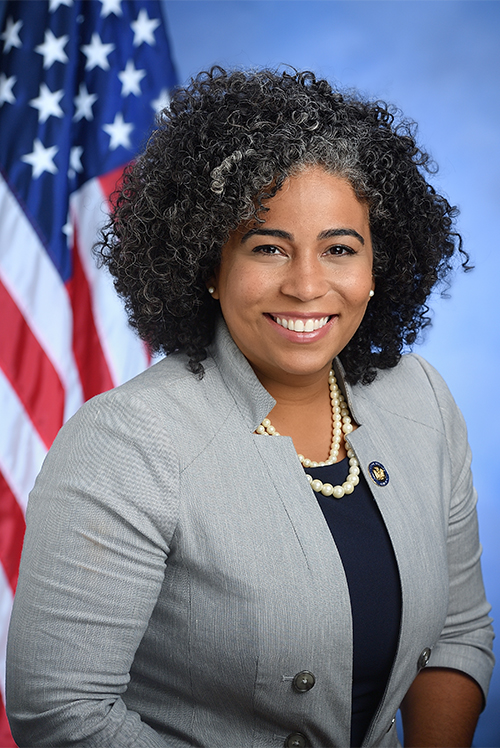
“Folks in the community listen, retirees listen and this raised alarms, especially after the Black Lives Matter movement,” she said. “More and more people are using their own devices to record police abuse and that may not tell us the entire picture and certainly not tell the media the entire picture. This is an important aspect of public safety and keeping people informed.”
Reyes said she is open to conversations about a delayed radio transmission, but “going totally dark is a problem.”
Gianaris, meanwhile, issued a statement regarding the Assembly receiving the bill: “Preserving access to law enforcement radio is critical for a free press, use by violence interrupters, and the freedoms and protections afforded by the public availability of this information. … As encrypted radio usage grows, my legislation would strike the proper balance between legitimate enforcement needs and the rights and interests of New Yorkers.”
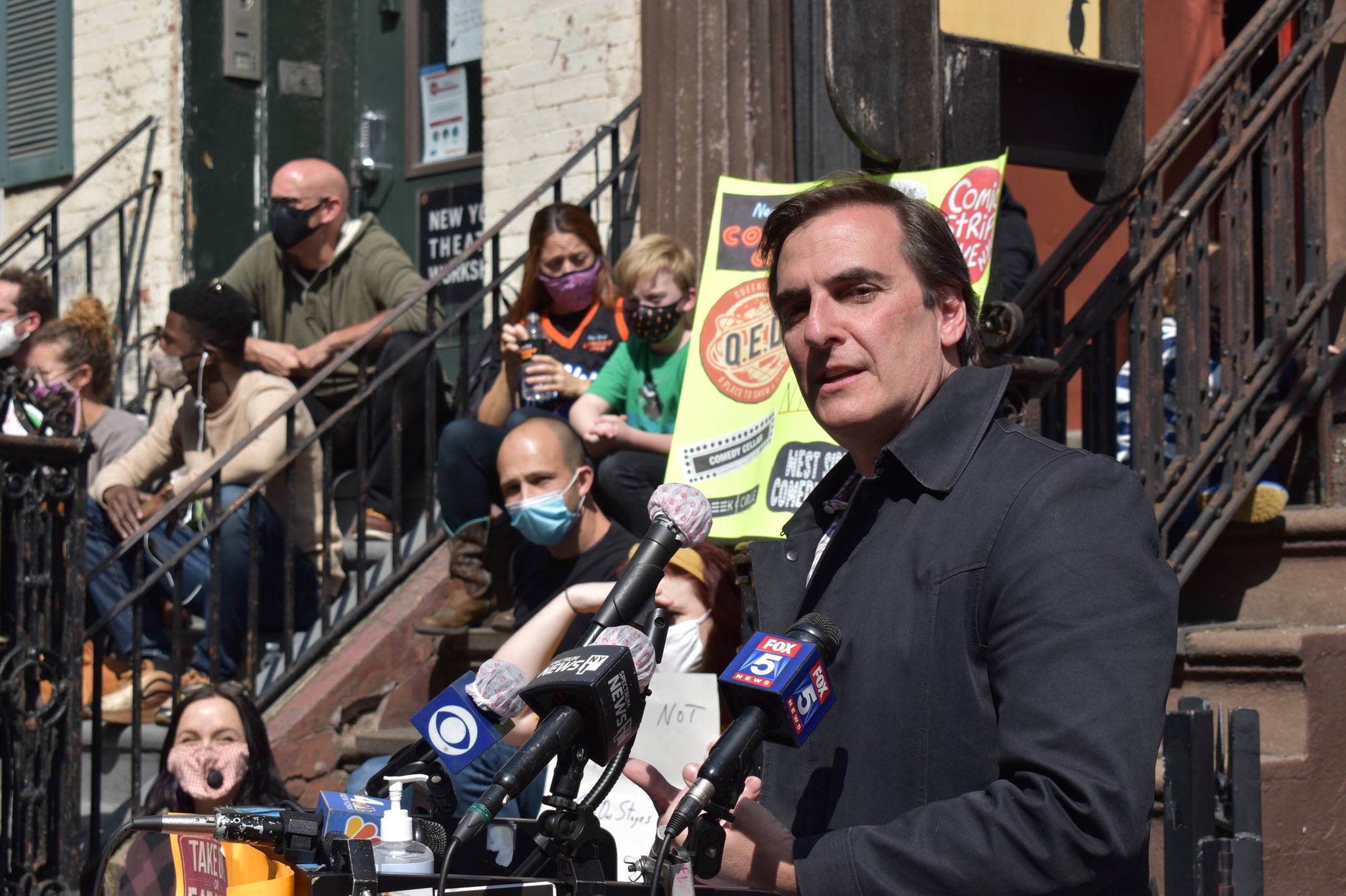
Media groups applauded the Assembly sponsorship.
“Journalists serve as the eyes and ears of their communities,” said Diane Kennedy, president of the New York News Publishers Association. “They alert local people to accidents, fires, storms and other threats to public safety. They need real-time access to police radio communications in order to provide timely, accurate information that can help their readers avoid dangerous situations. We commend Senator Gianaris and Assemblymember Reyes for introducing legislation to preserve journalists’ ability to carry on their work of keeping communities informed about law enforcement activities.”
Bruce Cotler, president of the New York Press Photographers Association, said “the vast majority of press photographers are solidly supportive of the police.” However, he said encrypting police radios without providing access to the media, “eliminates important checks and balances.”
“We want our police officers to be safe and to be able to do their jobs unhindered, but encryption of police radios that we have had access to for nine decades is destructive to transparency that has assured checks and balances,” he said. “Going dark would leave decisions as to what is news in the hands of the NYPD and eliminate the transparency that has made the police our partners.”



